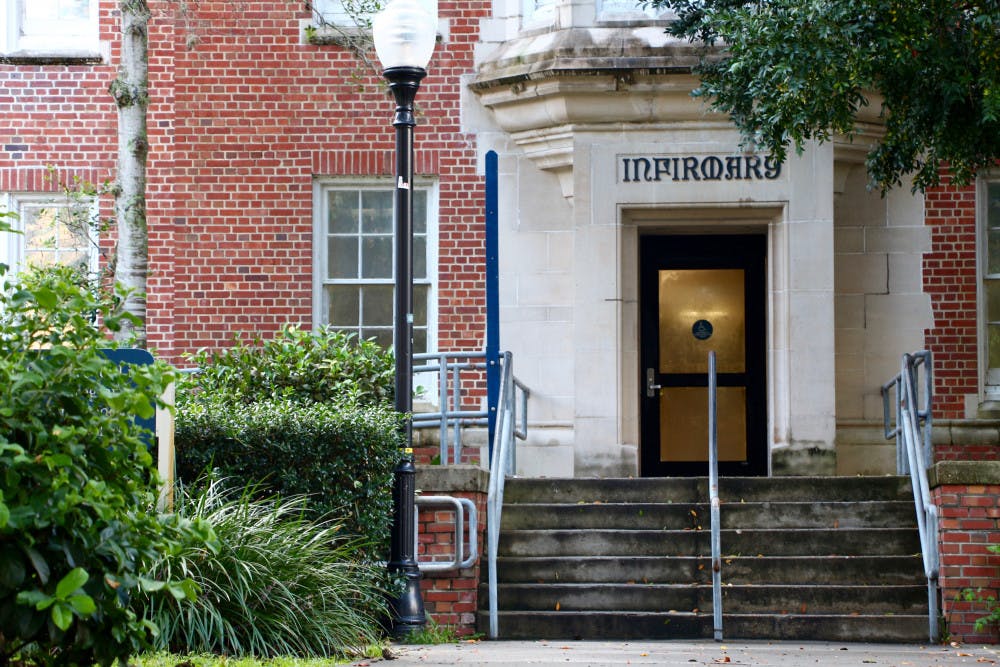After suffering from throbbing earaches, Alyssa Eatherly turned to UF’s Student Health Care Center in March in hopes of getting help.
Instead, she was sent home and told the throbbing pain, fever and hearing loss — symptoms of an oncoming ear infection she’s known since she was young — were nothing. She ended up in the emergency room the next day.
“They misdiagnosed me,” Eatherly, 19, said. “And the worst part is, they wouldn’t listen to me.”
Eatherly was one of 300 students the center may see in a single day, said Guy Nicolette, the director of the center. Health care costs have increased over the years while the number of available doctors remains the same, forcing them to stretch their staff thin.
The center, which costs about $19 million to operate each year, is funded mostly by a fee included in UF tuition. The rest comes from insurance and patient bills, he said.
The center’s administration handles student complaints to the best of its ability, he said.
“I think we state our mission and vision pretty clearly,” he said. “To become the preferred provider for every student.”
But for Eatherly, the center failed her.
“The medicine at UF has this amazing reputation that they definitely didn’t live up to,” she said.
• • •
Eatherly, a UF English and Spanish senior, has fought ear infections since she was 1 year old.
When she visited the health care center, she knew the throbbing pain was a sign it was coming back.
Eatherly said Dr. Cynthia Eddleton spent fewer than five minutes examining her after she waited for more than two hours. The doctor told her to take DayQuil and insisted she would feel better soon, despite Eatherly’s protests, she recalled.
After the pain became unbearable, she ended up at an emergency room, where a doctor confirmed she had an ear infection.
When the mistake in Eatherly’s case was realized, Nicolette said the doctor who treated her was approached. All interview requests to Eddleton were directed toward Nicolette.
Medical care is challenging, especially when answers are hard to find, he said.
“It can be frustrating for people, including the doctor, when you’re not cured the first time,” he said.
• • •
After Eatherly wrote an article about her experience, others began reaching out to her with similar experiences.
Anna Morgan, 22, said she visited the center when she felt sick. The doctor told her to drink fluids and get rest, she recalled.
After leaving with no treatment plan, an infection spread from her throat to her eyes. Because of the misdiagnosis, she fell behind in classes.
“I know they’re the doctor, but I know my body,” she said. “This is something that could have been prevented.”
Morgan, now a UF English graduate student, said she still goes to the center because of her insurance plan.
Nicolette said he hopes students receive the care they need but believes the doctor has the ultimate say.
“(Eddleton’s) notes reflect what she examined,” he said. “Neither you or I can second guess what she saw.”
After Eatherly’s article, she was offered the opportunity to speak with the Student Health Advisory Board, she said.
She said she hopes students learn from her story.
“Don’t let them mistreat you,” she said. “You know your body. Don’t let them make you feel insignificant.”






